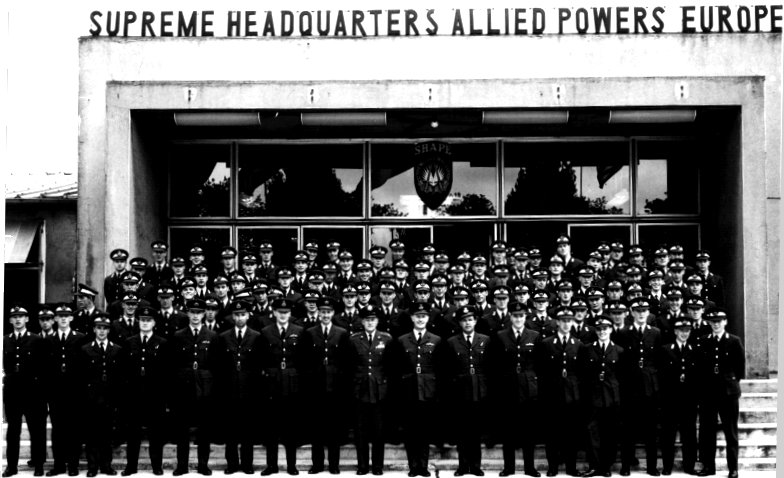
From Kenneth Weisbrode, World Politics Review: How do different-sized powers establish order among themselves? And how do larger powers compel smaller and weaker ones to do their bidding? Though abstract, these two questions have concrete applications in the real world and are among the oldest in international relations. Differential power relationships have been around since the first polities, later called states, came into existence, and over the course of history, various systems have arisen to manage them. Among the best-known examples from the classical world are the Greek alliances, also called leagues, which at times kept the peace, but also, when that failed, made wars far more costly than they otherwise might have been. Alliances and alliance-style relations, it turns out, are double-edged swords. As the political scientist Robert Putnam once observed in a seminal article, they also involve “two-level games,” whereby domestic factions compete with one another to dominate foreign affairs. Alcibiades and his generation knew a thing or two about playing one party off against the other in Athens’ client states.
Traditionally, a league — such as the one headed by Athens — becomes an empire when the so-called hegemon acts by force to prevent a smaller polity from seceding or to compel some other action, such as greater tribute. But in theory, at least, the glue for such arrangements is usually voluntary. Smaller states generally want to ally with a big power for obvious reasons of self-preservation, even if the relationship entails high costs. This so-called empire by invitation has also been characterized by the historian Geir Lundestad, with reference to the Atlantic Alliance, as an empire by integration, meaning that such arrangements assimilate patterns of authority and norms of state behavior. The notion is a tempting one, but such a flexible definition of empire and imperialism ultimately raises questions about the exercise of hegemonic rule. After all, from the point of view of the inviting power, such an invitation to integrate is not the same thing as a demand to do so. But what about from the perspective of the invited power? Indeed, sometimes the one doing the inviting is not the stronger power.
Readers of Thucydides will recall the Melian dialogue, which follows along these lines: The Athenians tell the Melians to submit; the Melians resist by pointing out that Athenian power would lose a good deal of legitimacy and attractiveness if it were seen to be so coercive. Such exchanges, like the one between the Dutch and the Spanish in the 17th century or between the Americans and the British in the 18th, tend to be resolved by the sword one way or another.
The psychological relationship between the shark and the minnow is complex. For one thing, they don’t live in a lake, but rather in a sea full of other sharks and minnows, with all the various relationships having a system-wide impact on perceptions and postures. The various internal divisions and splits on both sides of the Cold War are a case in point. Take, for instance, French President Charles de Gaulle’s decision in 1966 to withdraw France’s troops from NATO’s unified military command.
The fact that neither NATO nor its leading power, the United States, invaded France or otherwise compelled it to stay in the military command is generally cited as an example of the benign hegemony of the Western alliance: For better or worse, it was not a bona fide empire.
In fact, the relationship was more complex. NATO was the vehicle for American-led hegemony, but it was not an empire itself. And the reaction may well have been more severe had de Gaulle actually renounced the North Atlantic Treaty and declared neutrality or worse.
But what did the Soviets and others in their camp really make of the decision? Did they judge — correctly — that there really was no true Franco-American or Franco-NATO split? Did they recognize that the French would remain loyal members of the alliance, just on different terms? Or did some misread it as being a more grave challenge to Western unity?
The episode also offers a good illustration of the unspoken assumptions between different-sized powers ostensibly on the same side of a broader conflict. For a long time, de Gaulle had warned that he might take the step he eventually took. Whether anyone believed him is unclear, but few people in the U.S. government or in NATO were shocked when he finally did. Nevertheless, a small group of prominent Americans led by former Secretary of State Dean Acheson urged President Lyndon Johnson to “take de Gaulle to Coventry.” Johnson refused to do so in a very statesmanlike way. He was also being pragmatic: Transferring the alliance’s headquarters and all the related military assets from France to Belgium was a major undertaking for which French cooperation was essential. In addition, there were other areas of collaboration in the offing, as we know now, involving the transfer of nuclear technology from the U.S. to France, for example.
Moreover, there would have been little to gain by taking anyone to Coventry: None of the other allies, so far as anyone knew, had threatened to follow France’s lead. And despite terrible strains that were beginning to be felt from the Vietnam War, few in Europe were challenging the alliance’s underlying rationale. Indeed, a case could be made that the episode even boosted the alliance’s legitimacy, since it demonstrated that NATO was strong and secure enough to allow what appeared to be a quasi-defection. That would pay dividends a couple of years later, when compared to the Soviets’ reaction to the Prague Spring.
Kenneth Weisbrode is a historian at the Robert Schuman Centre for Advanced Studies, European University Institute, Fiesole, Italy. He was formerly a defense analyst at the Atlantic Council of the U.S. and the International Institute for Strategic Studies. His most recent book is "The Atlantic Century" (Da Capo, 2009). (photo: 89 Entry RAF College Cranwell)
Image: 89entry%2011%209%2011%20SHAPE%20Paris.jpg
